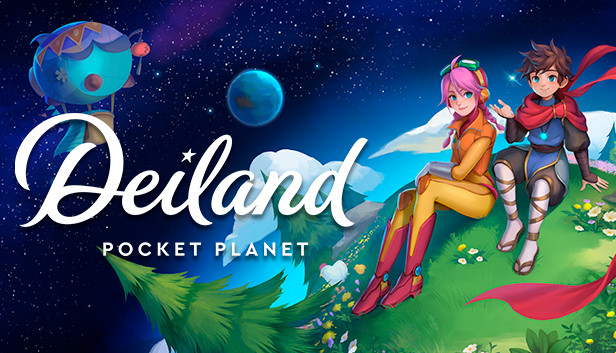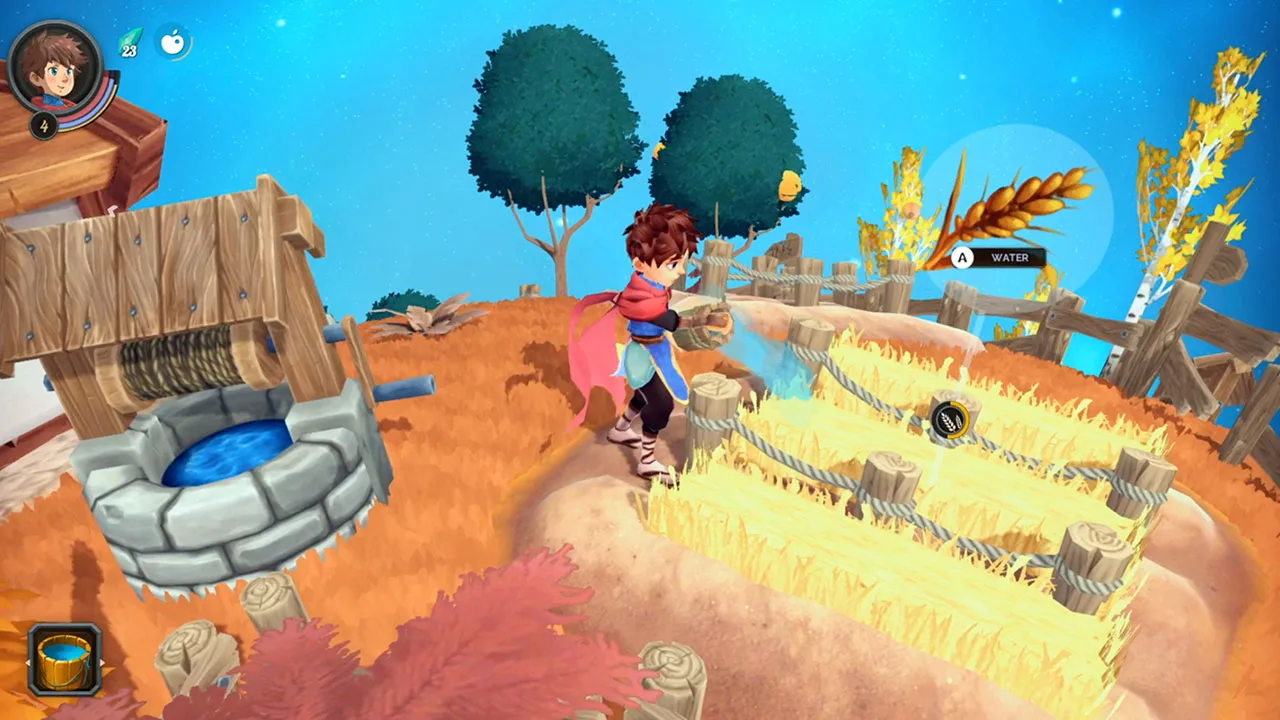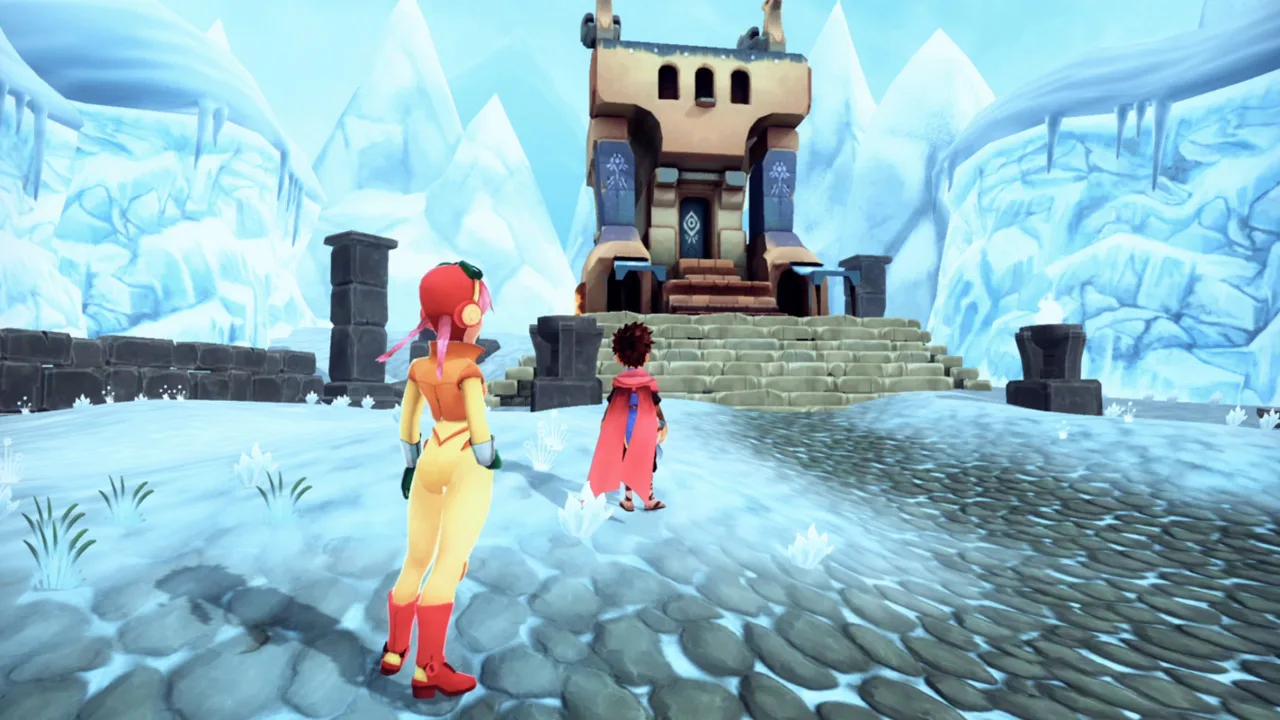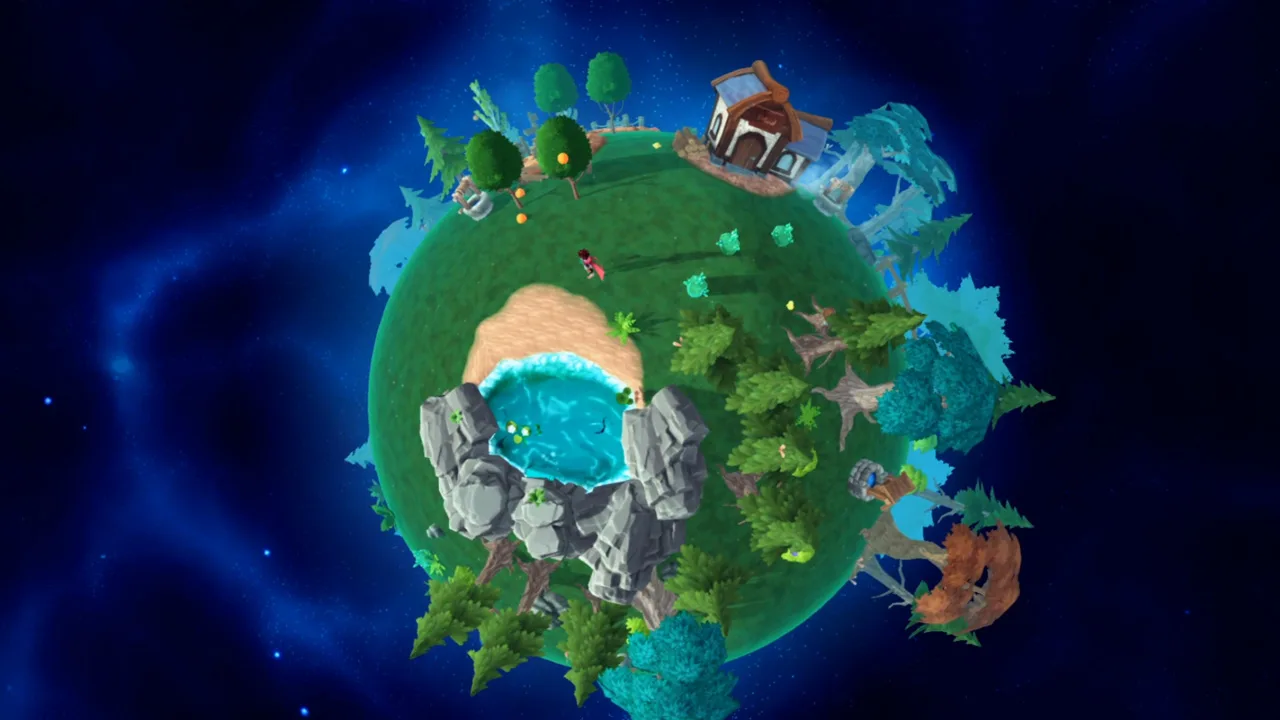Publication Date: 26/08/2025
Deiland: Pocket Planet

As much as it’s become a meme, I do enjoy a good cozy game. I like farming titles, which apparently make up the majority of the genre, but I prefer games with a little more structure, something less like Stardew Valley and more like Fields of Mistra. Hidden within the wastes of the decrepit Nintendo Switch eShop, I stumbled upon Deiland: Pocket Planet, a title that - despite everything - has both the vibes and quest-like structure I crave in the genre. In Deiland, you’ll build out your tiny ‘lil planet, grow crops and chop trees to create new resources to build and provide for various quests, and slowly unravel the mystery of just who our playable character, Arco is. All’s well in good in the early game, but after a few hours the cracks begin to form; you begin to spend longer and longer stretches of time waiting for certain seasons to roll around, or a particular quest-giver to appear. You’ll have so many resources to want for nothing, and with nothing to work towards, you’re just waiting, waiting, waiting, all to culminate in… nothing.
Considering the vast majority of these games had to be published and shipped on a physical disk, there was always a barrier of entry to the arrival of bottom-tier shlock popping onto their platform, as seen from the deluge of utter… well, *crap* that inundated the DS and Wii. Steam has been a PC haven for such trash for years, but for Nintendo, the release of the Switch heralded their turn to be consumed by poorly made, cheaply designed, rent-a-texture crapfests. But I still think there’s value in trudging through the unnumbered, endless slop; for many, it seems they view the Switch eShop as being filled with 8-9/10 bangers and 1-2/10 cashgrabs, but there’s a lot in between - titles made by small, yet impassioned devs, unable to match up their contemporaries in visuals or depth, but are filled with just as much heart. Deiland, at its foundation, is one of those games.

In Deiland, you take the role of Arco, a boy who awakens upon a tiny, verdant planet he christens Deiland, and sets about growing and developing the spheroid to greater natural heights through the evergreen, cozy acts of farming and cultivation. The base story isn’t really that complex, almost feeling like the charming equivalent of a storybook; much of the story is centered around Arco’s care for the planet, and the truth of his existence. There are some concepts thrown around about said existence that are quite interesting, but after a certain point many of these elements are just outright dropped or trail off without any real fanfare which is a massive shame. Now, it seems the developer of Deiland, Chibig, are focussed on building a connected universe with their games, and whilst it’s a really charming, engaging idea, it did leave Deiland final hours feeling like a bit of an advertisement for what this game *could’ve* been.
Gameplay is very simplistic at the best of times; you’ll use your pick to mine ore, an axe to chop wood, a hoe to plant and a fishing rod to fish. You’ll have upgrade trees to pursue for each of your tools, along with a bevy of both cosmetic and functional upgrades to Deiland for those who like to go all in on designing a home. Whilst I’m not one of those people, I have to admit by the end of my time in Deiland I had a bit of attachment to my (literal) little world. Having a little orchard in one place, farm equipment elsewhere, it all felt really cohesive and nice. On that note, farming food and growing plants - as this is a cozy game after all - takes a bit more of a center stage, with certain crops only growing in certain seasons of Deiland’s calendar. You’ll need to be constantly munching on food to keep up your various hunger and health meters, along with providing food for various NPCs, but growing food is generally a background task whilst you’re engaging in other avenues. There’s also a touch of combat in the game. Enemies will randomly spawn upon Deiland, and you’ll have to deal with them by spamming the attack button for much of the game to wack them with whatever you’ve got your hands on, with a few damaging spells unlocked towards the endgame. Combat encounters are generally infrequent, and I wouldn’t blame someone totally forgetting combat is even an element with how rare enemy encounters can be. Overall, Deiland’s gameplay loops are very, very simple, which is unsurprisingly considering it’s mobile game roots, but this isn’t a poor foundation by any means. It was the perfect game to play on my handheld Switch whilst watching some YouTube, grinding away at some goal or whatnot.
The game’s main form of progression, both story-wise and more functionally - namely, upgrading your tools and unlocking new buildings and resources - come in the form of questlines, each of which are centered around a particular visitor to Deiland. Each of them come from a variety of walks of life, such as Mun, a space explorer (and seemingly a character from the dev’s interconnected game universe); Goliath, a raging pirate who Arco sees kindness within; and Lily, a Flower Nymph who helps Arco discover the truth of what he is. Whilst I wouldn’t say any of these characters are deep, they each bring a very different vibe from one another and I generally looked forward to seeing what little jokes or lore tidbits they’d provide to me, along with what they had to say or what tasks they brought to Arco. Saying that, they do all request essentially the same kind of things; certain crops you can grow, resources you can mine, wood you chop and amenities you can build, with some monster slaying sprinkled in here and there.

It’s not a particularly interesting quest design, but it has a grindy element I initially enjoyed, and along with it being the main form of story progression, it didn’t bother me too much. The best pay off any of these quests had was the ability to explore an entirely new planet with its own bespoke creatures to fight and questlines to follow, and it sets a precedent that the rest of the game doesn’t quite meet. Whilst this second planet has enough meat to explore and engage with, the two additional off-world locations you can visit are ridiculously linear and bare-bones that they barely feel worth mentioning, a gigantic disappointment after the relatively engaging ice world. Overall, the quests really expose Deiland’s origins as a mobile title, but not necessarily in a negative sense. It’s just simpler. However, the interactions with these various quest givers also unearth a notable annoyance I had with the game - its localization. Now, I’m not 100% sure if the game was originally made in the dev’s native Spanish, and then thrown over to English, but whilst all of the dialogue and whatnot in the game is perfectly readable, it all feels very… off. The dialogue is very flat, very uncomplicated, yet awkward in delivery in a way that’s hard to describe. It all reads like that - very readable, but it comes off so awkwardly and always nipped away at me throughout my time.
Now, I’m happy to chop wood, grow crops, and mine my, uh, mine ‘til the cows come home, but I have to have some ostensible goal to work towards, and one thing Deiland struggles heavily from is a lack of long-term goals to tackle between quests. Early on, there were enough different questlines to tackle at once, with interspaced minor goals, like upgrading tools or Arco’s house, that I wasn’t ever really stuck doing nothing. However, once the early hours of the game passed, the cracks began to show. Slowly, you run out of those little tasks to keep you busy - there’s only so much wood you need to upgrade items, so many different crops to fill your belly and craft the various items you’ll need across the game. Eventually, you won’t have any active quests, and you’ll be left waiting for someone, anyone to turn up upon Deiland. The game slowly slips to a crawl, and you’ll find your attention, how little you’re actually providing to the game, begin to drift, and my encouragement to actually play fell away - a cardinal sin of anything that isn’t an idle game.
Even if quests don’t grow any more complicated, they’ll ask you to produce goods they can only be grown or found in a certain season, or become available only after completing a different character’s quest has been cleared. In the former, if you want something only growable in Summer, if you’re in the middle of Autumn, you’ve got a lot of time to kill, unless you want to waste time spamming sleeping again and again, which just sucks in any game you have to resort to such acts. Beyond waiting for certain seasons to roll about, characters will occasionally ask you for a drop from a certain monster, despite most monsters spawning on Deiland seemingly at random. The Chef questline was one of the last I finished, because I genuinely went four hours before I saw the monster drops the chef needed for his SECOND quest. Insanity. There’s apparently a system in the game that weights the appearance of enemies if you have a quest involving their drops, which makes it even more baffling that I took so damn long to proceed with such an early quest. Make their drops available from a later game vendor, or something, because not being able to complete Brram’s quests means I can’t get certain items from him, which locks me out from other quests, turning the game into a twisted knot of stalled progression.

If any single issue in Deiland tarnishes the experience for me, it’s the focus on random chance it places. So much of Deiland is based around random chance and timing. With the latter, you can just spam sleeping again and again to force yourself to the correct timeframe for whatever crop or seed you’re trying to grow, but when it comes to the visits of questgivers and monster spawns, you are apparently at the mercy of RNG, and those numbers were mighty unkind to me. For a ‘cozy game’ like Harvest Moon or Stardew, random events work a little more in theory because they’re much larger, long-form experiences, and these random events aren’t the core thing driving the game. But in Deiland, when the opposite is true, and you’re left exploring the depths of your belly button in a vain attempt to pass the time waiting, awful developmental decisions have been made. And it’s crazy, because there are elements in the game that offset these specific frustrations; two of the questgivers give you an item during their respective questlines to summon them to your planet on demand, regardless of if you need anything from them. Even if it was for only the last handful of quests, being able to call in Locke or Brram on demand to finish up their questlines without waiting multiple hours for them would’ve left my final impressions on Deiland far more positive.
The culmination of all these issues with the game didn’t even hit me until literal hours after the shoe had dropped. After literal hours spent waiting for a certain quest giver to appear (Locke the Wizard can eat my ass), I finally turned in the last item, ticked over the last questline to 100% and… nothing happened. No cutscenes, no resolutions to the interesting concepts raised in the story, not even credits. Bemused and annoyed, I searched what little resources exist on the internet for Deiland, and found that I had in fact already seen the credits. And hadn’t, at the same time. Because after completing one of the game’s few climatic encounters, Deiland had crashed and kicked me back to my home planet, quest completed, and leaving me none the wiser that that, in fact, was the end of the game. This wasn’t even the only bug I encountered with the game; several times, after sleeping, Arco would just be stuck in place, forcing me to reset the game, and there was at least one reset that was needed when all my crops stopped growing at all. But these pale in the shadow of a crash that hides the fact that I actually already beat the game.
Deiland certainly isn’t bad, and in fact, I thought its early hours were pretty damn fun, albeit a bit basic. Building up your planet and pursuing quests and upgrade trees isn’t anything complex, but it’s satisfying to engage in. But the further you travel across this tiny world, the cracks begin to show. The amount of time you spend waiting for things - crops to grow, monsters to spawn, seasons to pass, NPCs to arrive, quests to trigger - is immense, and it only grows as the pool of tasks becomes wider apart and shallower in number. This, coupled with the game’s emphasis on 100%ing each of its questlines, but providing you with nothing - and a total game crash that hid the fact I beat the damn game - really left this initially okay game with a very poor taste in my mouth. It’s not bad, and it’s foundation is solid, but there really isn’t anything here you won’t see in another half dozen games in this subgenre, and the fact it feels like an advertisement for the developer’s other games does it no favours whatsoever.
